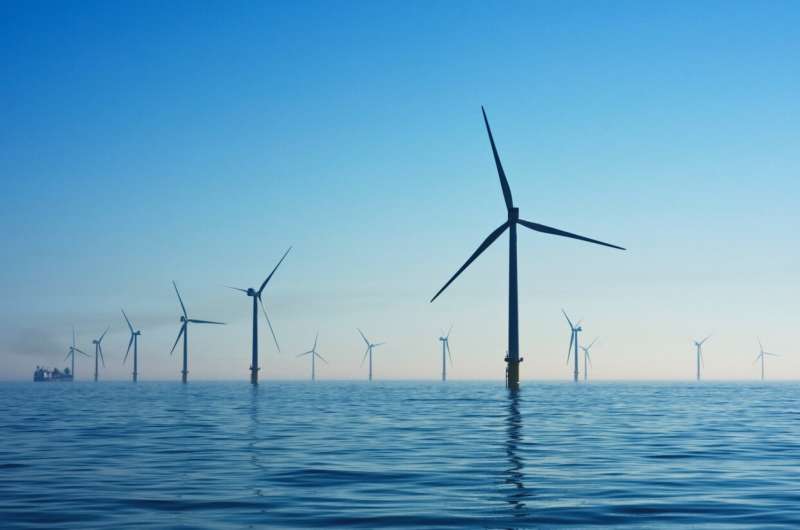This article has been reviewed according to Science X's editorial process and policies. Editors have highlighted the following attributes while ensuring the content's credibility:
fact-checked
trusted source
proofread
Experts call for new economic modeling to meet energy transition ambition

The ambition of policymakers navigating the energy transition has surpassed the capacity of economic modeling for the first time, a new keynote paper argues.
In a featured comment publication for Nature Energy, researchers—including from the Institute for New Economic Thinking and the Oxford Smith School at the University of Oxford—outline the challenges facing policymakers working with traditional economic modeling across the public and industrial sectors. The paper is titled "Economic modeling fit for the demands of energy decision makers."
The paper calls for a shift from narrow cost-benefit analysis and modeling based on economic equilibrium, towards models which capture the dynamics of the transition and represent policy ideas in real detail. These capabilities are required to match the policies governments are actually designing and implementing now, such as the ETS in China, offshore wind auctions in the UK, and the Inflation Reduction Act in the US.
Lead author Dr. Pete Barbrook-Johnson, a Senior Research Associate at the Institute for New Economic Thinking and the Smith School for Enterprise and the Environment at Oxford, said that the global policy conversation had shifted, bringing with it a different set of requirements for economic modelers.
"We've been working with partners in China, India, Brazil, the UK, and Europe to explore what kind of modeling support they need to understand the energy transition.
"What they tell us is that they really need models that allow them to capture the detail of policies to understand what their impacts might be and how the energy transition might unfold. We have been developing these capabilities for a few years, and this cohort of new models is now maturing.
"But, we must acknowledge what is required is a new type of modeling that's not been established and used in lots of places, so we need to do more to expand and learn from the promising work that's already out there. In this paper, we explore what we need to do, things like invest in new teams, work with partners in more countries, and collect more detailed economic data to match the details of the models," Dr. Barbrook-Johnson said.
INET Oxford Complexity Economics Program Director and Smith School Baillie Gifford Professor of Complex Systems Science at the Oxford Martin School, Doyne Farmer, said that there was a danger that traditional economic modelers were being left behind by energy transition.
"Traditional economics has failed us by providing, so far, mostly bad advice. We're trying to remedy that by developing a whole new style of models based on a different set of principles that does a better job of explaining empirical facts and that can better guide us through the transition.
"This paper lays out a kind of manifesto for what can be done, including talking about the successes we've had in the EEIST project, where we gave examples of models that we think are doing a significantly better job than others.
"Among other things we've shown that the energy transition is going to happen much faster than people have been realizing as the costs of renewable energy are going to drop lower than fossil fuels on a purely economic basis. We need new economic modeling to support this. We still need some government support for technologies like green hydrogen that are needed to provide storage," Professor Farmer said.
More information: Pete Barbrook-Johnson et al, Economic modelling fit for the demands of energy decision makers, Nature Energy (2024). DOI: 10.1038/s41560-024-01452-7
















